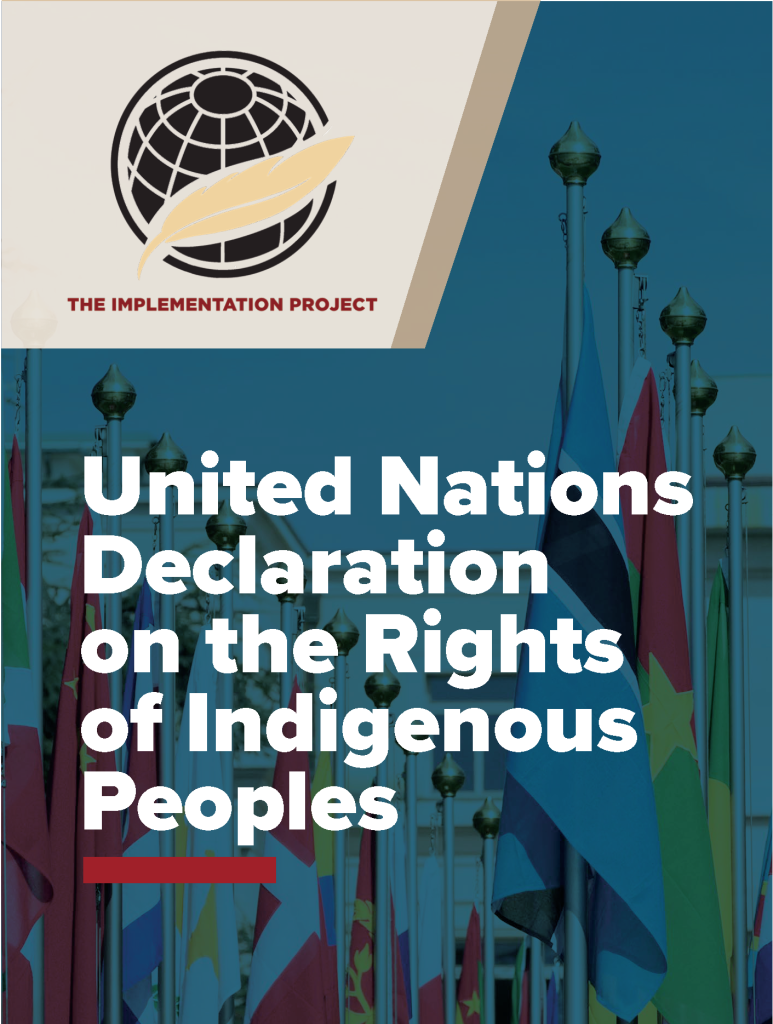In 2007, the United Nations General Assembly adopted the Declaration on the Rights of Indigenous Peoples (the “Declaration”). This is a standard-setting document supported by all UN Member States in the Outcome Document of the World Conference on Indigenous Peoples in 2014, including the United States, committing to the individual and collective rights of Indigenous Peoples.
(The following text is adapted from the United Nations’ Frequently Asked Questions about the Declaration.)
What is the Declaration on the Rights of Indigenous Peoples?
The Declaration is a comprehensive statement addressing the human rights of Indigenous Peoples. It was drafted and formally debated for over twenty years prior to being adopted by the General Assembly on 13 September 2007. The document emphasizes the rights of Indigenous Peoples to live in dignity, to maintain and strengthen their own institutions, cultures and traditions and to pursue their self-determined development, in keeping with their own needs and aspirations. Other U.N. bodies address Indigenous rights through Conventions such as the International Labour Organization’s Convention No.169 and the Convention on Biological Diversity Article 8(j).
What rights are recognized by the Declaration?
The Declaration addresses both individual and collective rights, cultural rights and identity, rights to education, health, employment, language, and others. The text says Indigenous Peoples have the right to fully enjoy as a collective or as individuals, all human rights and fundamental freedoms as recognized in the Charter of the United Nations, the Universal Declaration of Human Rights and the rest of international human rights law. Indigenous Peoples and individuals are free and equal to all other peoples and individuals and have the right to be free from any kind of discrimination, in the exercise of their rights, in particular that based on their indigenous origin or identity. Indigenous Peoples have the right to self-determination. By that right they can freely determine their political status and pursue their economic, social and cultural development. They have the right to maintain and strengthen their distinct political, legal, economic, social and cultural institutions, while retaining their rights to participate fully, if they choose to, in the political, economic, social and cultural life of the state.
Official Versions of the Declaration:
- English | Español | Français | Русский | عربي | 汉语 (PDF version)
- English | Español | Français | Русский | عربي | 汉语 (Official Resolution Text)

